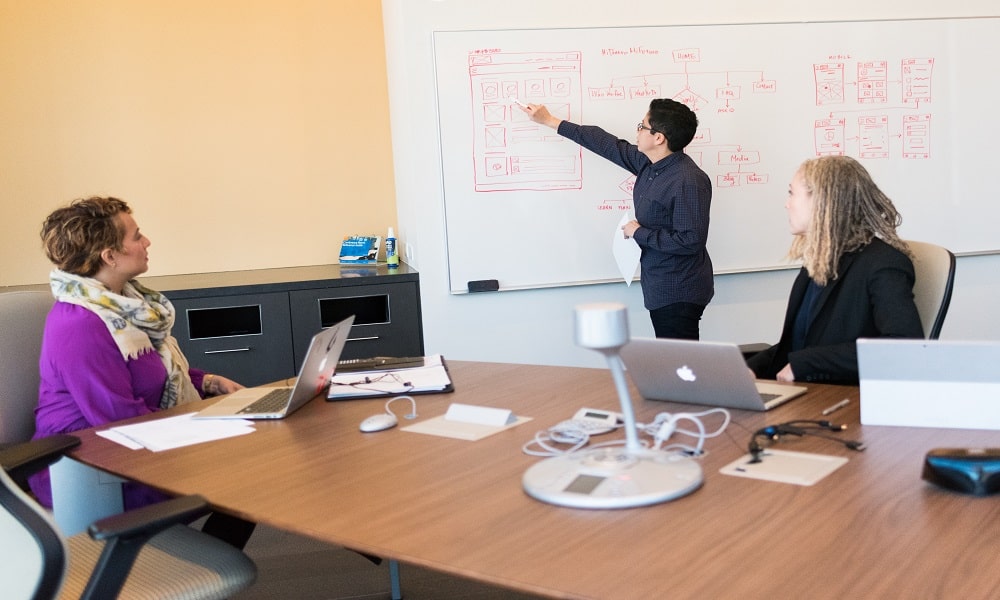Mobile technologies are notable for their ability to combine mobility and high processing capacities. In this respect, healthcare is a field that can greatly benefit from investments in this sector. Doctors often have to work outside of static workplaces. In this article, we’ll discuss the importance of mobile app development for healthcare. As you’ll find out custom healthcare software development services are a worthwhile investment for many companies in the current market.
The Importance of Mobile Apps in Healthcare
Mobile apps play a crucial role in revolutionizing healthcare by improving patient engagement and empowerment. These apps provide patients with easy access to their health records, appointment scheduling, and personalized health information, empowering them to take an active role in managing their own health. Furthermore, mobile apps enhance accessibility and convenience by allowing patients to communicate with healthcare providers, access telehealth services, and receive real-time updates and reminders. This not only saves time and effort but also ensures prompt and convenient healthcare delivery. Additionally, mobile apps enable remote patient monitoring and telehealth services, enabling healthcare professionals to review patients’ vital signs, track medication adherence, and provide virtual consultations from a distance. This improves patient access to care, particularly for individuals in remote areas or with limited mobility. Overall, mobile apps in healthcare have the potential to transform patient experiences, improve outcomes, and bridge the gap between patients and healthcare providers.
Trends in Mobile App Development for Healthcare
The trends in mobile app development for healthcare include:
- Integration of artificial intelligence (AI) and machine learning (ML): mobile apps are increasingly incorporating AI and ML technologies to enhance various aspects of healthcare. These technologies enable apps to analyze vast amounts of patient data, provide personalized recommendations, and assist in diagnosing and predicting health conditions. AI and ML algorithms also power features like natural language processing for chatbots and virtual assistants, enabling more effective communication between patients and healthcare providers.
- Adoption of the Internet of Things (IoT) in healthcare apps: IoT is revolutionizing the healthcare industry by connecting various devices and sensors to gather real-time health data. Mobile apps are leveraging IoT technology to integrate with medical devices and wearables, enabling seamless data collection, remote patient monitoring, and personalized health insights. This integration allows healthcare providers to remotely monitor patients, receive alerts in case of abnormal readings, and provide timely interventions.
- Embracing wearable devices for health monitoring: Wearable devices, such as fitness trackers and smartwatches, are becoming increasingly popular for health monitoring. Mobile apps are adapting to this trend by integrating with wearable devices to track and monitor various health parameters like heart rate, sleep patterns, and activity levels. These apps provide users with personalized insights, goal tracking, and reminders to improve their overall well-being. Wearable device integration also enables healthcare professionals to access real-time data and make informed decisions regarding patient care.
Key Features and Functionalities in Healthcare Mobile Apps
What are some of the key features and functionalities of healthcare mobile apps? Let’s take a look:
- Electronic health record (EHR) access and management: Healthcare mobile apps allow users to securely access and manage their electronic health records, including medical history, lab results, and prescriptions.
- Appointment scheduling and reminders: Users can easily schedule appointments with healthcare providers through the app, receive reminders, and even reschedule or cancel appointments as needed.
- Medication tracking and reminders: Mobile apps help users keep track of their medication schedule, send reminders for taking medications, and provide information about dosages and potential interactions. For example, patients prescribed semaglutide can use these apps to track when to drink on semaglutide and monitor potential side effects.
- Health and fitness tracking: These apps enable users to monitor their physical activity, track steps, calories burned, and sleep patterns. They may also include features for tracking diet, water intake, and weight management.
Challenges and Considerations in Healthcare App Development
Let’s also review the key challenges and considerations in healthcare app development. Here’s the list of the key factors you need to consider:
- Regulatory and compliance issues: Healthcare app developers need to navigate complex regulatory frameworks, such as HIPAA, to ensure compliance with privacy, security, and data protection regulations.
- Data privacy and security concerns: Protecting sensitive patient data is paramount, requiring robust security measures, encryption, and adherence to data privacy laws to prevent unauthorized access or breaches.
- User experience and accessibility: Healthcare apps must be user-friendly, intuitive, and accessible to a wide range of users, considering factors like age, disabilities, and diverse language preferences.
- Interoperability and integration with existing systems: Ensuring seamless integration with existing healthcare systems and interoperability with electronic health records (EHRs) is crucial for efficient data exchange and continuity of care.
- Integration with third-party systems: Healthcare apps may need to integrate with external systems, such as lab results platforms or insurance databases, requiring careful consideration of compatibility and data exchange protocols.
Conclusion
To summarize, investments in mobile apps for the healthcare sector are a promising framework. These technologies offer many ways to enhance the patient experience. If you’re interested in investing in such technologies, we recommend addressing professionals. In this regard, we recommend Keenethics. This company has multiple years of experience in the healthcare development market and can produce high-quality products for the sector.


